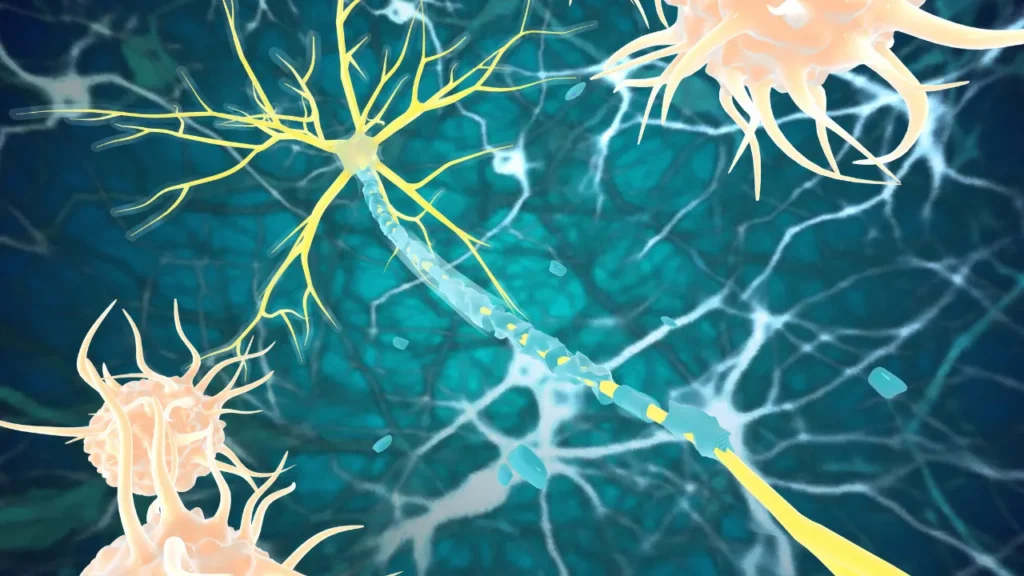Senega is a traditional herbal treatment that has lately gained attention in the nootropic community for its possible cognitive advantages. Senega is generally associated with the root of the Polygala senega plant. Senega’s nature, health advantages, ideal dosage, adverse effects, possible drug interactions, and best practices for its responsible usage to improve alertness, focus, and cognition are all covered in this extensive essay. It also explores the physiological mechanics of Senega’s influence on the body and brain, as well as its chemical makeup, offering a thorough scientific analysis of this fascinating supplement.
You May Also Like:
CBD for Concentration: 3 Epic Benefits that Boost Your Focus
CBD for Concentration: The Productivity Hack for Energy and Focus
Senega: Benefits, Dosage, Side Effects, Drug Interactions, And Other Important Information is an original (NootropicsPlanet) article.
Nature of Senega
The Polygala senega, a plant indigenous to North America, specifically the United States and Canada, is the source of senega root. It is a member of the Polygalaceae family, and indigenous peoples have long used it for its therapeutic benefits. Saponins, polygalacic acid, and phenolic compounds are among the active ingredients of Senega root that are thought to be involved in its medicinal benefits.
Health Benefits of Senega
The potential health benefits of Senega, particularly for the brain, encompass several cognitive and neuroprotective aspects. These benefits are primarily attributed to the active compounds within Senega, such as saponins, polygalacic acid, and various phenolic compounds, which work together to support brain health and cognitive functions. Understanding these benefits requires a deeper look into the mechanisms through which Senega acts on the brain:
Enhanced Neurogenesis
The process by which new neurons are created in the brain is known as neurogenesis. Compounds in Senega may promote neurogenesis, especially in parts of the brain linked to memory and learning, such the hippocampus, according to some research. This effect may help prevent age-related cognitive decline and maintain brain health throughout life by enhancing memory formation, learning ability, and general cognitive resilience.
Neuroprotection
The neuroprotective properties of senega are yet another important advantage for the brain. Senega’s phenolic compounds’ antioxidant qualities can help reduce oxidative stress, a disorder marked by an imbalance in the body’s levels of antioxidants and free radicals. Oxidative stress is linked to a number of neurodegenerative illnesses, such as Parkinson’s and Alzheimer’s diseases, and it contributes to brain damage. Senega may help shield neurons from harm and death by lowering oxidative stress, which may lower the risk of neurodegenerative illnesses.
Anti-inflammatory Effects
Numerous neurological disorders and cognitive deficits are associated with chronic inflammation. Senega’s anti-inflammatory properties may be especially advantageous for the brain. Senega may lessen the symptoms of disorders like anxiety and depression and lower the chance of acquiring neurodegenerative diseases by lowering inflammation. Reducing inflammation is essential to preserving brain health and function since it has been shown to impact neurotransmitter activity and cause neuronal damage.
Enhancement of Alertness and Focus
Senega’s saponins may stimulate the central nervous system, which could increase focus and alertness. This can be especially helpful for people who are suffering from cognitive fatigue or who want to improve their cognitive function when doing tasks that call for prolonged focus and attention. Senega may promote increased productivity and cognitive efficiency by improving alertness and focus.
Cognitive Performance and Memory
Beyond raising attentiveness and concentration, sensega has the ability to improve cognitive function. Its effects on neurogenesis and neuroprotection may enhance learning capacities and increase memory recall and retention. Senega’s effects on cognitive enhancement make it a desirable nootropic for anyone trying to preserve or improve their cognitive function as they age, whether for professional productivity, academic goals, or both.
Modulation of Neurotransmitter Activity
Some data points to Senega’s potential impact on the activity of neurotransmitters, which are molecules that transfer messages across synapses in the brain, even though the exact mechanisms underlying this effect are still unclear. Senega may impact mood, memory, learning, and other aspects of cognitive function through regulating neurotransmitter activity. The potential benefits of Senega usage for cognition may be explained by this modification of neurotransmitter activity.

Chemistry of Senega
The majority of Senega’s medicinal actions are attributed to its saponin content, which is the focal point of its chemistry. Saponins are substances that resemble surfactants and have the ability to alter biological membranes, possibly influencing the uptake and release of neurotransmitters. Additionally, the presence of phenolic compounds has antioxidant properties that are essential for preserving cognitive function since they lower oxidative stress.
Physiological Mechanism of Action of Senega
Senega acts through a number of physiological mechanisms, which are involved in its nootropic effects in particular.
First, Senega’s saponins may improve the blood-brain barrier’s permeability, improving the flow of nutrients and medicinal substances to the brain. By giving the brain the substances it needs to function at its best, this may enhance cognitive processes.
Second, one possible explanation for Senega’s cognitive advantages is that it has anti-inflammatory properties. Cognitive impairment and numerous neurological disorders are associated with chronic inflammation. Senega may aid in the preservation of cognitive abilities and the avoidance of degenerative diseases by reducing inflammation.
Finally, Senega may have neuroprotective effects by protecting neurons from oxidative stress and apoptosis, perhaps as a result of its antioxidant qualities. This would enhance cognitive health and resilience.

Optimal Dosage of Senega
Determining the optimal dosage of Senega is complex due to the variability in individual responses and the lack of extensive clinical trials. Generally, dosages in traditional use have varied widely, and contemporary nootropic users often rely on anecdotal evidence to guide their usage. It’s crucial to start with lower doses and gradually increase to gauge personal tolerance. Consulting a healthcare professional before starting any new supplement, including Senega, is always recommended.
Side Effects of Senega
Senega is generally regarded as safe when used in moderation, although adverse effects should never be disregarded. Particularly with larger dosages, they could include gastrointestinal distress such as nausea and diarrhea. If taken late in the day, Senega’s energizing effects may also result in restlessness or insomnia.
Potential Substance Interactions of Senega
Senega may interact with other vitamins and medications, particularly those that thin the blood or those that the liver metabolizes. Senega’s saponins have the ability to influence other chemicals’ effectiveness and absorption. Therefore, before adding Senega to a prescription regimen, people using medicine should speak with their doctor.

Best Practices for Responsible Use of Senega
To ensure the best and safest use of Senega as a nootropic supplement, adhering to several best practices is advisable:
- Consultation with a Healthcare Provider: Before beginning any new supplement, including Senega, consulting with a healthcare provider is crucial, especially for individuals with pre-existing health conditions or those taking other medications.
- Starting with Low Doses: Begin with the lowest possible dose and gradually increase based on personal tolerance and effectiveness. This approach helps minimize the risk of adverse effects.
- Monitoring for Side Effects: Users should closely monitor themselves for any adverse effects after starting Senega and adjust the dosage accordingly or discontinue use if necessary.
- Avoiding Long-term Use without Breaks: To prevent potential tolerance or adverse effects, it’s wise to use Senega cyclically, with periods of discontinuation.
- Avoid Use While Pregnant: Due to the limited data on Senega’s safety during pregnancy, expectant mothers should use caution and abstain from using it while pregnant. It is essential to see a doctor before using any supplement, including Senega, in order to protect the health of the growing fetus as well as the individual.
Senega:
Conclusion
Senega, as an herbal supplement, shows much promise, especially when it comes to improving cognitive function. This page offers a thorough explanation of Senega’s position as a nootropic by thoroughly examining its nature, health advantages, ideal dosage, possible adverse effects, drug interactions, and best practices for safe consumption. Its importance in maintaining brain health is highlighted by its capacity to stimulate neurogenesis, offer neuroprotection, lower inflammation, improve alertness and focus, boost memory and cognitive function, and regulate neurotransmitter activity.
To reduce dangers, it’s crucial to use Senega carefully, consulting medical specialists, starting with small dosages, keeping an eye out for side effects, and avoiding long-term continuous use. Individual responses may differ, as with any supplement, highlighting the significance of making customized and knowledgeable decisions. when considering Senega usage.

References:
- Senega. Retrieved from: https://www.novapharmacy.com.au/all-health-topics/herbs/senega/
- What is Senega? Retrieved from: https://botanicalinstitute.org/senega/
- SENEGA. Retrieved from: https://www.rxlist.com/supplements/senega.htm
Important Note: The information contained in this article is for general informational purposes only, and should not be construed as health or medical advice, nor is it intended to diagnose, prevent, treat, or cure any disease or health condition. Before embarking on any diet, fitness regimen, or program of nutritional supplementation, it is advisable to consult your healthcare professional in order to determine its safety and probable efficacy in terms of your individual state of health.
Regarding Nutritional Supplements Or Other Non-Prescription Health Products: If any nutritional supplements or other non-prescription health products are mentioned in the foregoing article, any claims or statements made about them have not been evaluated by the U.S. Food and Drug Administration, and such nutritional supplements or other health products are not intended to diagnose, treat, cure, or prevent any disease.


